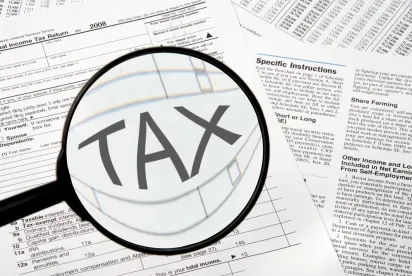Why is it that payments for naming rights for projects financed by tax-exempt bonds are treated as giving rise to private business use but those same payments made to a tax-exempt organization do not give rise to unrelated trade or business income?
First, let us briefly review of rulings from the tax-exempt bond area.
In PLR 200323006, the IRS ruled that naming rights would be treated as private business use, but that the use would be below the applicable threshold of 10%. In the ruling, the project was the construction of a convention center, arena, and supporting infrastructure. The IRS first listed out the twenty material terms of the naming rights contract, which provided copious details on how the name was to be used by the business. Although the rules were detailed, the IRS acknowledged that they were very narrow in scope (they were focused on the name) and non-physical in nature. However, the IRS stated that the “the power to control … is sufficient to give rise to private business use.” The IRS noted that the naming rights would qualify under the incidental use exception had the payments resulted in less than 2.5% use. Because they didn’t qualify for the exception, the IRS went on to apply a proportionate benefit test by comparing the fair market value of the naming rights contract to the fair market value of the facility.
In PLR 201049003, the IRS considered an agreement with a corporation covering (1) radio broadcast and telecast rights, (2) advertising sales and corporate sponsorship program rights, and (3) publishing and vending rights. The IRS again stated that “promotional activities or announcements” could create private business use. However, the amount of such use was below the 2.5% incidental threshold.
While the rulings above focus on businesses, issues may also arise where the person paying for use of the name is an individual and that individual also has a synonymous business (think Walt Disney or L.L. Bean).
Now, let’s compare this to the tax-exempt organizations area.
Code Section 513(i) provides that “qualified sponsorship agreements” do not create Unrelated Trade or Business Income for the recipient of such payments. These qualified sponsorship agreements are:
any payment made by any person engaged in a trade or business with respect to which there is no arrangement or expectation that such person will receive any substantial return benefit other than the use or acknowledgement of the name or logo (or product lines) of such person’s trade or business in connection with the activities of the organization that receives such payment. Such a use or acknowledgement does not include advertising such person’s products or services (including messages containing qualitative or comparative language, price information, or other indications of savings or value, an endorsement, or an inducement to purchase, sell, or use such products or services” Code § 513(i)(2)(A).
For those wondering about the genesis of this statute, the IRS was threatening to treat payments received by college football bowls (which are generally exempt organizations) from their sponsors as UBIT. The uproar resulted in the enactment of the statute.
Note that this statute is focused on the recipient – it does not state what the treatment for the payor is. If the payor is a business, they may very well treat the payment as a business expense because they have received a benefit.
However, in a related context, the IRS has been willing to rule that a benefactor does not receive anything of value for having a name prominently displayed. Specifically, the IRS has also allowed benefactors to claim charitable deductions when naming rights are received in connection with a donation. The IRS stated that “[s]uch privileges as being associated with or being known as a benefactor of the organization are not significant return benefits that have a monetary value.” Rev. Rul. 68-432, 1968-2 C.B. 104. See also Treas. Reg. § 53.4941(d)-2(f)(2) (“ the public recognition a person may receive, arising from the charitable activities of a private foundation to which such person is a substantial contributor, does not in itself result in an act of self-dealing since generally the benefit is incidental and tenuous”) (emphasis added). These rulings came from a time where many payments were made by individual benefactors when the name of a building got little attention outside those people who were physically present. For instance, think of a name on a college building, a hospital lobby, or a church or synagogue. The IRS may not have been focused on the use of business names and the advertising value.
Can these differences be justified? Maybe. One could argue that for public policy reasons it makes sense to encourage charitable donations, and it therefore makes sense to interpret the law in an accommodating fashion. While naming rights have value, and some donors wish to receive something more for their donation above and beyond warm and fuzzy feelings (and maybe a deduction), some hope for even more.
So then, what is the policy justification for limiting the receipt of payments for naming rights on tax-exempt facilities? One can argue that the Code is actually consistent because a special statutory rule exists for UBIT purposes. Perhaps the solution then is IRS or Congressional action to create an analogous rule for tax-exempt bonds.



 />i
/>i

